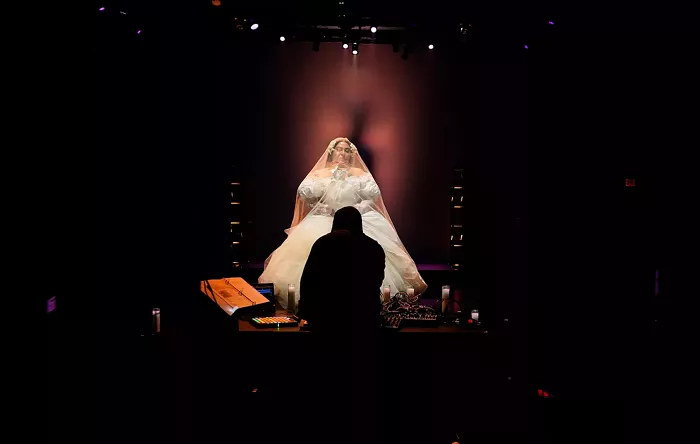
"At the pinnacle of San Cha's opera Inebria me, an apparition in white emerged: Esperanza (Kyle Kidd), angelic and blood-smeared, clutching a red rose. Dolores (San Cha, the show's librettist and composer) gazed at the spirit, her expression a blend of awe and longing, the unraveling newlywed finally alight with something beyond grief. Her encounter with Esperanza sparked a radical, gender-free religious fervor, one of ecstasy and drama, detached from self-flagellation or duty."
"At first, the plot seemed deceptively simple: A working-class femme marries a wealthy man, but feels trapped by the role she's expected to play. But an unexpected encounter frees Dolores from those constraints, awakening her queerness and spiritual agency. Led by a trans and queer cast and crew of color, the opera draws from the melodrama of telenovelas but finds wholly original terrain, inspired by San Cha's strict Catholic upbringing, queer self-discovery, and experiences in the Bay Area drag scene."
"Set in a "haunted hacienda," Inebria me's stage was shrouded in fog and dominated by a black, angled cross. On either side, chiptune pioneer Leeni Ramadan played warped synth while Darian Donovan Thomas bowed a violin, both dressed in nuns' habits. The opera opened with Rosa (Carolina Oliveros) praying to the veiled Madre Jutta (Lu Coy), who loomed from a second-level balcony."
Inebria me centers on Dolores, a newlywed whose encounter with an apparition named Esperanza ignites a gender-free religious fervor and awakens her queerness and spiritual agency. The three-act Spanish-language opera adapts San Cha's 2019 album La Luz de Esperanza and queers telenovela melodrama through trans and queer performers of color. The haunted-hacienda staging featured fog, a black angled cross, warped synth and bowed violin played by musicians dressed in nuns' habits. Plotlines include sibling envy and guilt as Rosa confesses jealousy over Dolores, and the production draws on strict Catholic upbringing, queer self-discovery, and Bay Area drag influences.
Read at Portland Mercury
Unable to calculate read time
Collection
[
|
...
]